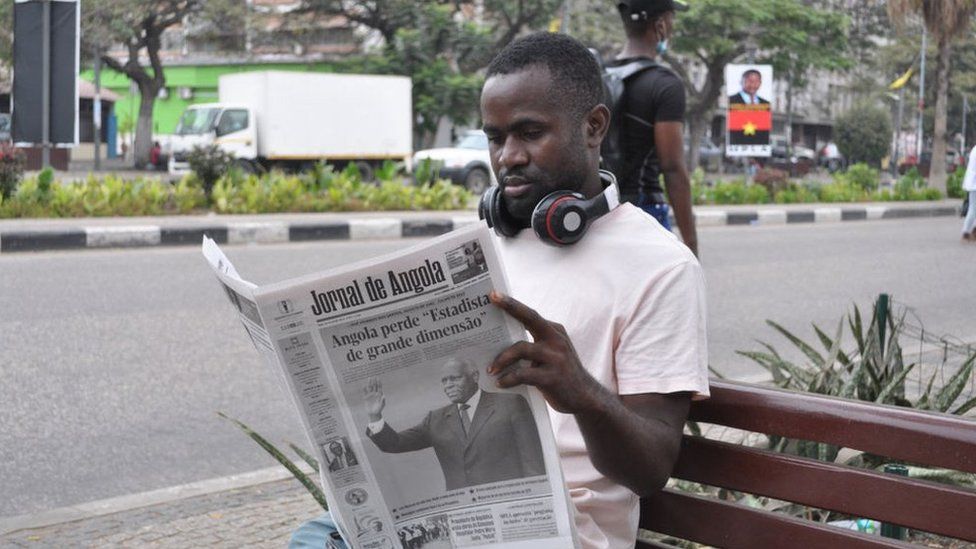The media landscape is dominated by state-owned outlets. Only four of the numerous privately held publications that arose after the introduction of multiparty politics in 1992 still exist in print.
Reporters without Borders (RSF), an NGO, claims that "censorship and control of information still heavily weigh on Angolan journalists.".
State-owned Jornal de Angola, the most read daily newspaper in the country, and the terrestrial TV provider TPA hardly ever criticize the administration.
The only source that broadcasts content in native tongues like Bantu is state-run Radio Nacional de Angola (RNA). Private radio stations are present in some cities, such as Catholic Radio Ecclesia, but RNA is the only network with almost complete national coverage.
Freedom of expression is guaranteed by the constitution. Defamation and state security laws, however, restrict free speech, according to the US-based organization Freedom House.
Independent journalists are allegedly frequently watched and harassed by state agents, and self-censorship is widespread.
MultiChoice Angola and TV Cabo both offer pay television services.
According to Internetworldstats.com, there were 8.9 million internet users worldwide as of December 2021, or 26% of the total population.
- Jornal de Angola, a government-run national newspaper.
- Weekly private O Pais.
- Weekly Folha 8 - private.
- Weekly privately owned Novo Jornal.
- State-owned Televisao Popular de Angola (TPA) runs national Canal 1 and Canal 2 in Luanda.
- Private TV Zimbo.
- State-run Radio Nacional de Angola (RNA) runs Radio Luanda, Radio FM Estereo, Radio Ngola Yetu, Radio 5 for sports, Radio Canal A, and Radio 5 for ethnic programming.
- Catholic radio station, Ecclesia.
- Private, Luanda-based Luanda-Antena Comercial.
- English-language, state-run Angola Press (Angop) pages.
- News website from Portugal called AngoNoticias.
- Club-K is a news website.
- Portuguese and English news website Angola24Horas.







